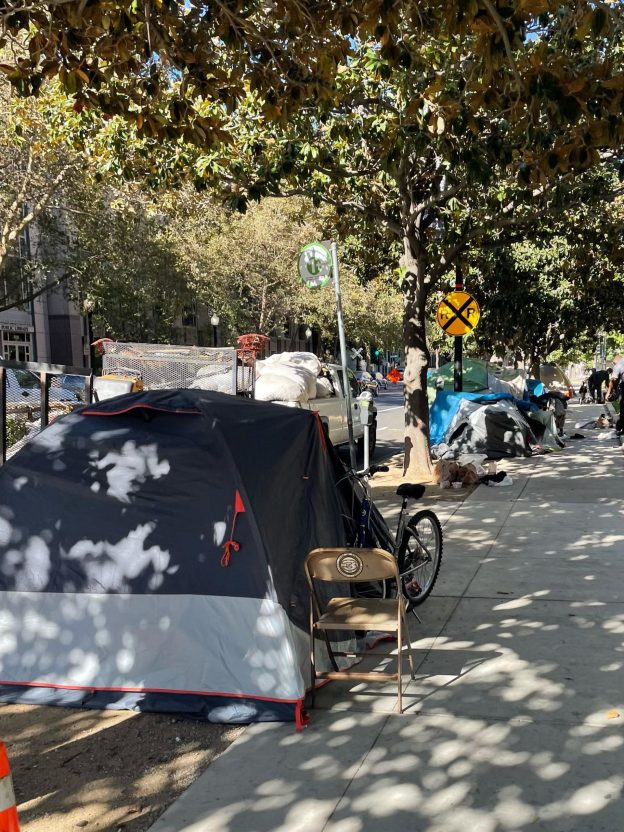On September 13, 2022, I provided testimony on the Affordable Housing charge to Texas Senate Committee on Local Government.
Here is my opening statement. “As this committee rightfully discusses ways to address the barriers to the production and financing of affordable housing, I must be clear that the production of more affordable housing is not- in and of itself- an answer to the state’s 17.8% increase in the pre-COVID homeless population (2020 over 2016).
“Housing only” has been the United States’ sole response to homelessness since 2013 when it rolled out Housing First as its one-size-fits-all solution to homelessness. They promised this solution would end homelessness in a decade- a date that is right around the corner from today.
The Department of Housing and Urban Development (HUD) is the largest backer of homelessness at the federal level. They wholly defunded services such as mental health therapy, drug and alcohol counseling and employment training as part of this roll out, instead funneling all funding into housing subsidies only.
Despite a 42.7% increase in permanent housing units dedicated to the homeless, the pre-COVID data included in the page 3 chart shows a 15.6% increase in homelessness and a 20.5% increase in unsheltered—street—homelessness.
In California- the only state to fully adopt Housing First- the results are even more dire. Despite a 33% increase in the number of permanent housing units dedicated to the homeless, California’s homeless population rose by 33.8% overall, by 47.1% in the unsheltered population.
It’s important to note that both scenarios occurred during a period of robust economic growth and significant spending increases at the federal level—200%–and in CA—over 100%.
The bottom line is that if “housing only” were the answer to homelessness, the homeless population would have declined at the national level given the 42.7% increase in housing units, and in CA given 33% increase in housing units.
Housing First has not just permeated the “progressive” states such as California. Most HUD funding is distributed through counties and Continuum of Care Boards (CoCs) where the financial heft of the HUD contribution often drives local policy as well… including here in Texas.
Non-profits that rely heavily on government funding—the vast majority—were also forced to morph to the Housing First approach to survive, including shelter and transitional housing programs that historically imposed service participation requirements and length-of-stay limits. The non-profits that stood their ground either perished or were eventually “black-listed” by policymakers and media who asserted Housing First as “the only way”.
What is left now is an ineffective system that is devoid of choice, innovation, and accountability at every level. Its failure is hardly surprising.
Still, under the shroud of three myths, “advocates” continue to assert the superiority of the Housing First, claiming:
- “We need more affordable housing to solve homelessness.” As discussed earlier, HUD’s own data disproves this.
- “The homeless need permanent housing in order to be able to access services.” Throughout the country, including Texas-based programs Haven for Hope, shelters and transitional housing programs are providing temporary housing AND services in a much more efficient, effective and affordable manner.
- “Services are available for housed individuals who want them.” People mired in mental illness and addiction are highly unlikely to request such services, and HUD’s defunding of them has forced non-profits to find alternative, nearly non-existent funding to provide services which few have been able to do. Making matters worse, all non-profits that require service engagement are rendered ineligible for public funding in jurisdictions where Housing First is the only allowable approach.
What is the answer?
We must recognize that homelessness is multi-layered. The system must be multi-faceted in response. We need to re-instill choice, innovation, effectiveness, and accountability at every level of the system.
We must acknowledge—not ignore—the issues that often lead to, or are a result of, homelessness. 78% of the homeless struggle with mental illness and/or addiction. Many lack employment histories. Many women and children—and some men— have experienced significant trauma due to domestic violence. We must help them—and in some cases require them—to engage in services to address these issues so they can successfully obtain and sustain housing.
At the federal level, I encourage support of H.R. 6018- a significant step in restoring choice, innovation, effectiveness, and accountability.
As we gear up for the Texas 2023 legislative session, I will be revealing our specific solutions for Texas. Stay tuned!

